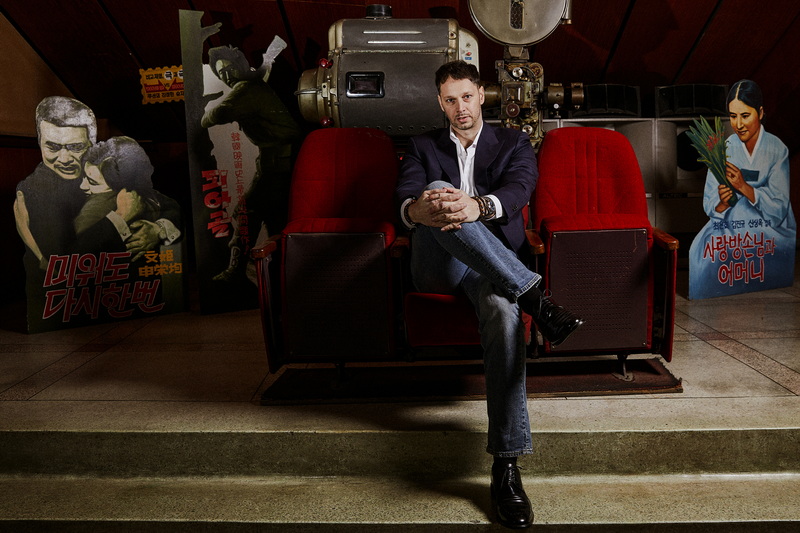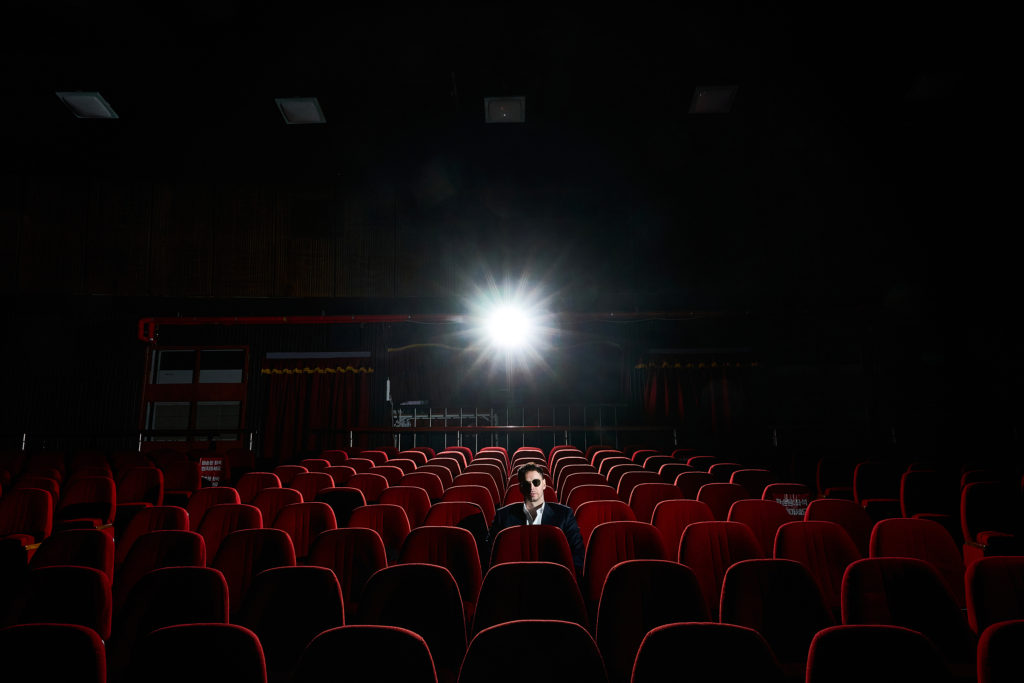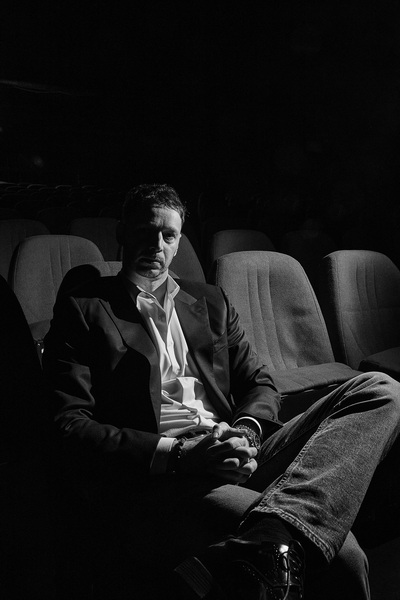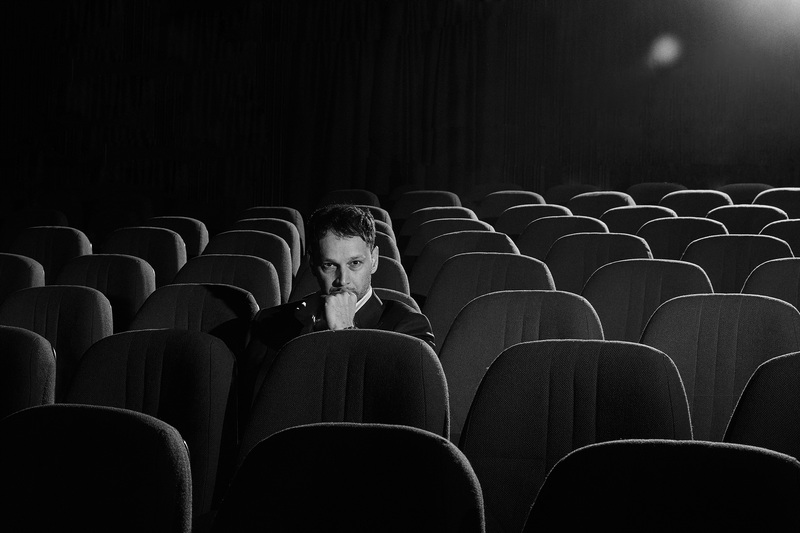City of Lights, Camera, Action: Filmmaker Attila Korosi in Gwangju
By Jana Milosavljevic
Attila Korosi was born in Yugoslavia and is the director, writer, and producer of the feature film Maze of Fate. Maze of Fate is a crime drama, filmed in one of America’s most dangerous neighborhoods. The film is expected to be released in the first quarter of 2023, and Mr. Korosi is currently working on his new projects while based in Gwangju. Upon coming to Korea, he created a short documentary about the May 18 Democratization Movement and received a special award for it. Despite his busy schedule, Mr. Korosi took the time to meet our team in person and shared his interesting story.
Gwangju News (GN):Thank you for kindly making time and joining us here at the Gwangju International Center (GIC) for this interview. While preparing for today, I came across an online article about you subtitled “Attila Korosi does the impossible from growing up in a war-torn country to pursuing his filmmaking passion in L.A.” Myself growing up in the same war-torn country that no longer exists and knowing the reality, I must say your life itself does seem a bit like a movie. Could you tell us about your per aspera ad astra (Lat. “through hardships to the stars”)?
Attila Korosi: Thank you very much for having me. It is great to meet somebody else from my country here in Korea. I remember when the military came to my house and took my father away. I remember crying. I think I was four or five years old. It was a very scary and surreal experience. One thing I noticed is that it is actually not so bad growing up in a war. It seems like people are friendlier, they seem to be closer, neighbors help each other. It is all a matter of perspective.

I went to America in 2007 on a full athletic scholarship. I always wanted to make films, and I wanted to do it in the States. But I did not study film. I chose to study business, and I got my degree in accounting because I believed accounting would provide me with a very good set of skills that can help me with a different side of movie making: budgeting – the side that not many artists are usually familiar with.
So, I got my bachelor’s degree in accounting and then I got a very good job offer at a prominent accounting company at the time. Nevertheless, that was when I thought – you know what, life is too short! I do not want to be 50 or 60 years old and have regrets wishing I could go back in time and take the risk, wishing I would have pursued my dreams.
I moved to Los Angeles without knowing anybody and made a couple of short films when I finally decided it was time for me to produce a feature film. Everyone always talks about the “American dream,” people having guts and not being afraid to pursue big things. What really surprised me was the mentality that even in the U.S., everyone around me was telling me it was impossible to make the film that I wanted to do because I had no budget.
At first, I bought a camera for $1,050 and made a whole movie by myself. At the time, I thought it was the best movie in the world. But after watching it again, I realized it was garbage. I was so embarrassed to show it to anyone. I kept repeating the process for two or three years until I learned that I needed a good cinematographer, I needed an editor, I needed the colors retouched, the sound designed – so many things needed to be done on a high level. Then I assembled a team of almost 200 people to make my first legit feature film, which was Maze of Fate. The team that worked on it was made up of well-established professionals in their respective fields as well as actors such as Richard Cabral from American Crime; Robert LaSardo from Léon: The Professional, which is one of my favorite movies; and also Corina Calderon from Suicide Squad. It took three and a half years to finish, and then just two months ago, in December, it was sold to a reputable distributor and is going to be released in the first quarter of 2023. I am very excited for the world to see it.
GN:In a brief introduction video that can be found on your YouTube channel, you mentioned watching movies was your escape from the war zones around you. In what way do you think growing up in troubled surroundings influenced your filmmaking?
Attila Korosi: I think people who grew up in a war like I did or those from impoverished neighborhoods have a great advantage as opposed to those more well-off. I think we are not afraid to take risks or hear “no” for an answer. Conquering insurmountable obstacles, like surviving a war, for example – what else can be more challenging than that? In a war, you do not have resources, but our parents, they taught us how to make something out of nothing. People say you cannot make a movie unless you have 10 million dollars. I say – what are you talking about? There are movies like Paranormal Activity or The Blair Witch Project that were made on micro budgets, eventually were a huge success, and made hundreds of millions of dollars. The sky is the limit!

GN:You often quote Orson Wells saying,“A writer needs a pen, an artist needs a brush, but a filmmaker needs an army.” Could you elaborate a bit on how you connect to this quote and what meaning it has for you?
Attila Korosi: Oh, absolutely, that is a great question! In short – nobody can make a movie on their own. It is a team effort, and so many different variables have to work out perfectly to make it happen. As a director, I am the general, and I need a military of very reliable people. I have to encourage teamwork with my leadership and inspire the whole military to work efficiently to transfer my vision onto the big screen.
GN:Your first feature film, Maze of Fate, was screened at Sony Pictures. How did you feel at that time?
Attila Korosi: Sony Studios is one of the biggest, most prestigious studios in the world. I got a standing ovation for the first time in my life. I cried. It was an amazing and surreal experience. You are always biased in favor of your own movie because it is your baby. But when complete strangers and professionals praise you and help you down the line later on, that definitely gives you confidence.
GN:Now, everyone must be curious – what brought you from Hollywood to Gwangju?
Attila Korosi: In 2020, when the Covid-19 pandemic started, in the States, everyone was in a panic. The whole movie industry was chaotic, and everything was shut down. My girlfriend, who is originally from Korea, suggested that we come here, as Korea was still open, everyone was wearing masks, and the situation seemed to be more under control.
GN:What was your first impression of Gwangju and Korea in general? Did your opinion of Korea change after coming?
Attila Korosi: Well, prior to coming, my knowledge was very limited. I was very surprised by how clean and safe it is. People are usually very polite and quiet compared to the U.S. One thing that surprised me, with Korea being one of the most developed countries in the world, is that people are not so open to communicating in English. I find it a bit difficult to communicate because of that.
GN: You received a special award (and a distribution deal with KBS!) at Seoul City Hall for your short documentary about the May 18 Democratization Movement on its 40th anniversary after a selection process covering over 300 films. How did you learn about the movement and what inspired you to make a short film about it?
Attila Korosi: My girlfriend first told me about May 18, and actually, I saw and enjoyed the movie A Taxi Driver a lot. That is what got me more interested, and then I visited the May 18 Democratization Movement Archives. I met a very knowledgeable lady there, I think she is also a professor, who gave me a tour of the Archives in English. She showed me some of the evidence and explained about the movement. I also went to the May 18th National Cemetery and other related places. What finally inspired me to make the short movie was the piece composed about the movement – the March for the Beloved, which I also ended up using as the score in my short documentary. I submitted the piece to several festivals, and a couple of months later, when I had completely forgotten about it, I got a call saying that I had won a special prize! I still remember I did not even have a suit for the ceremony – I needed to run to the store in Itaewon just before the start and, because as you see, I am a tall man – I could not find my size. I was nearly late! (laughs)
GN:As far as I am aware, you were the only non-Korean awarded. Do you think recreating Gwangju’s path to democratization through the eyes of an “outsider” gave you a different perspective? What was your approach to creating the documentary?
Attila Korosi: Well, every time when I create something, the most important step for me is research. If I want to portray something well, I really want to make sure that I do the research to the best of my ability, especially when it is a sensitive topic. So, I did lots of research – as I mentioned, I went to different museums, met with different people and, putting that all together, delivered a short piece that seemed to have resonated well with people.
GN:I learned you have been doing some work in Geoje, as well. What other projects have you done in Korea so far?
Attila Korosi: Work in Geoje began as a summer holiday with my girlfriend. I was offered to make and post on social networks a short video about my travel experience in Geoje. I was then asked to continue doing so by the persons in charge, and eventually, I created six videos in total. The response was so good that they ended up raising a substantial amount of money for me to make a feature film documentary about the island, its history, and its future tourism prospects. However, unfortunately, I got a call saying that I had to go back to L.A. immediately for another production going on there, so I flew back and had to postpone the documentary.

GN: Finally, could you share with us a sneak peak into your future plans on projects both inside and outside of Korea?
Attila Korosi: Currently, I am developing several projects. Thanks to Maze of Fate, for the first time in my life, a big producer reached out to me. I was not out hunting for producers, but Peter Billingsley, who is the executive producer of the first Iron Man that launched the Marvel cinematic universe, reached out to me, and I have been working with him for almost two years now. I was developing stories, writing outline screenplays, learning the details, and seeing how the big Hollywood filmmaking structure works. It was a great experience. I do not think you can learn this going to a film school.
I also have a first look distribution deal with a distribution company in the U.S., which means every film I wish to produce right now, I can take it to them and have a worldwide distribution. I would really like to put a team together here and make a film, like a co-production between America and South Korea. I have in mind an action horror screenplay that I think can be a perfect story for this market. That is one of my goals for the year 2023.
GN: Is there anything you would like to share as a final comment for our Gwangju News readers?
Attila Korosi: I think what you guys here at the GIC are doing is great. I think foreigners that come to South Korea do not have many outlets such as the GIC where they can communicate, where they can learn about the culture. And I think having that is very important because I believe South Korea is a fantastic country with great opportunities, with great people. Another reason why I want to make a movie here is because I want to show that in South Korea, even if you are a foreigner, it is not an obstacle – you are welcome here, you will be supported, and you can make big things happen.
Photographs by Kim Hillel Yunkyoung.
The Author
Jana Milosavljevic was born and raised in Serbia. She currently lives and works in Gwangju as one of the GIC’s coordinators. She loves exploring new places, learning about new cultures, and meeting new people. If you are up for a chat, she can talk to you in Serbian, English, Korean, Japanese, or German.







